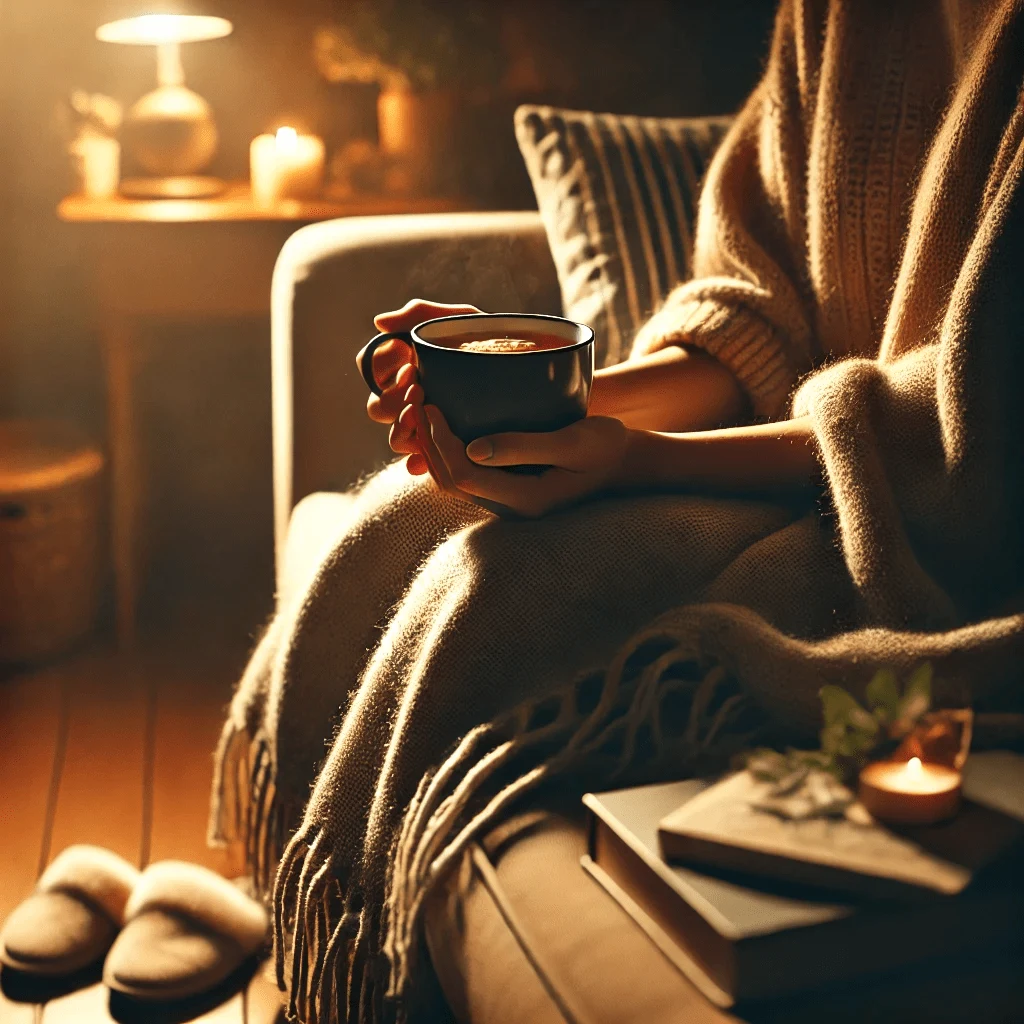It’s late, you’re tired, but your mind won’t switch off. Instead of scrolling your phone, try something proven to calm restless nights: herbal teas for sleep.
Caffeine-free options like chamomile, valerian, and passionflower contain natural compounds that relax the body, ease anxiety, and signal it’s time to rest. These aren’t just old remedies — modern research backs their benefits too.
If you’re wondering which herbal teas help you sleep best, here are seven soothing choices that can become your new bedtime ritual.
Why Herbal Tea is a Natural Sleep Solution
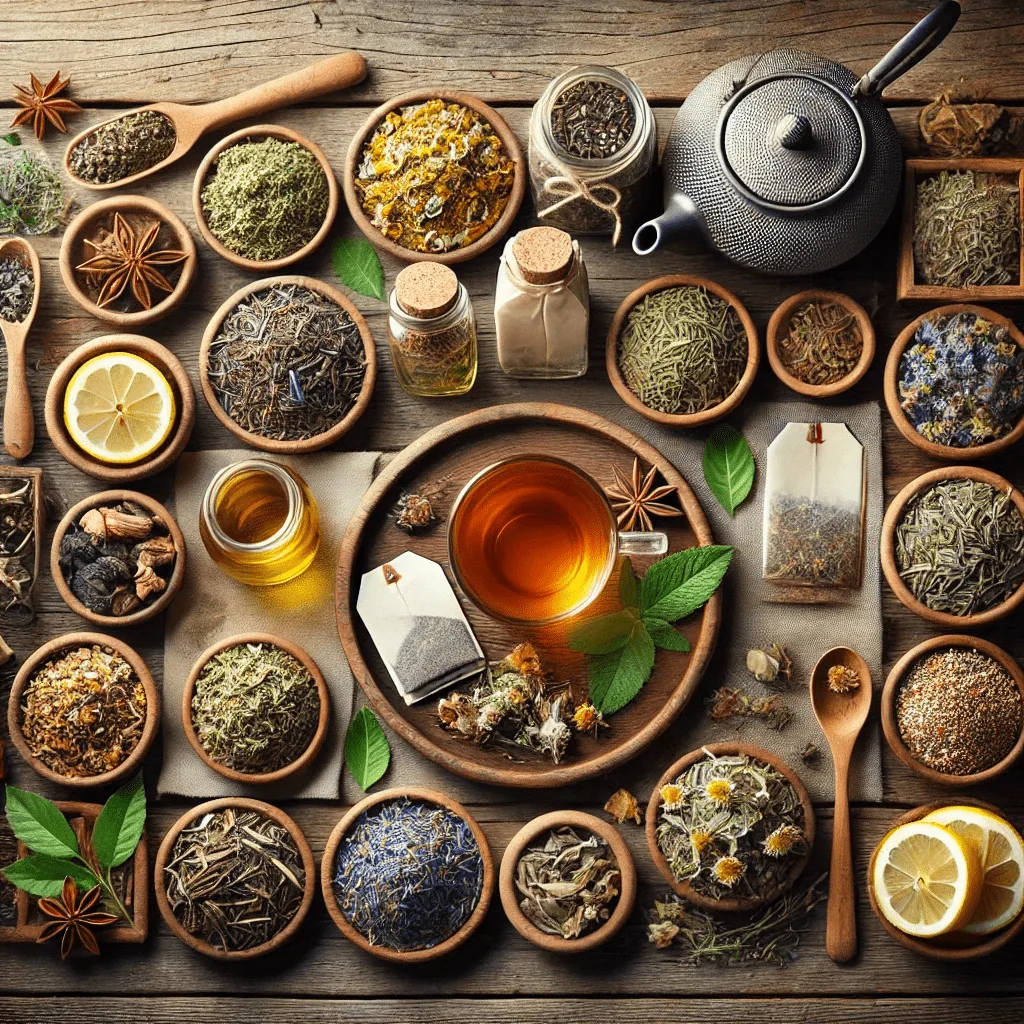
Falling asleep isn’t always easy — whether it’s racing thoughts, tomorrow’s to-do list, or just that restless feeling at night. Instead of turning to pills or harsh fixes, a warm cup of herbal tea offers a natural sleep solution that gently helps your body and mind wind down.
How Herbal Teas Support Deep Sleep
A warm cup of non-caffeinated tea before bed does more than comfort you. The heat itself relaxes your muscles, slows your breathing, and signals your body it’s time to rest. On top of that, herbs like chamomile, valerian, and passionflower contain natural compounds — such as apigenin and GABA boosters — that calm the brain, ease anxiety, and help you drift off without the grogginess of sleep medications.
Ready to put this natural sleep solution into practice? Let’s look at seven of the best herbal teas for sleep that can help you relax and rest easier tonight
Top 7 Herbal Teas for Sleep and Stress Relief
Not all herbal teas are created equal — especially when it comes to winding down at night. Some are better at calming nerves, others ease digestion, and a few are straight-up natural sedatives.
Let’s take a closer look at seven of the best herbal teas for sleep, including their benefits, flavors, and how to brew them for bedtime bliss.
1. Chamomile Tea
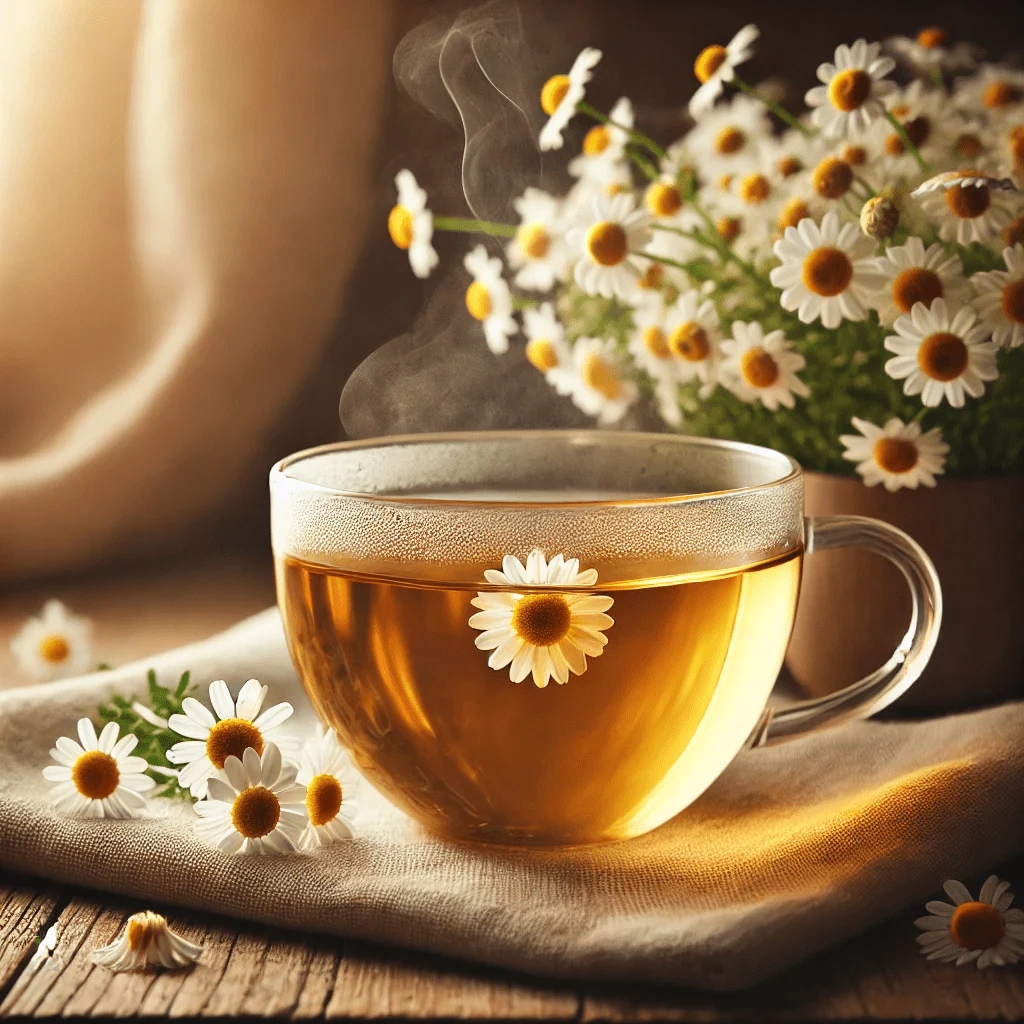
What it is:
Chamomile is probably the first tea that comes to mind when you think of sleep — and for good reason. It’s made from daisy-like flowers that have been used for centuries as a gentle calming remedy.
Why it helps with sleep:
Chamomile contains apigenin, a natural antioxidant that binds to certain receptors in your brain, promoting drowsiness and reducing insomnia symptoms. It’s one of the most popular herbal teas that help you sleep, and it’s backed by science.
Taste profile:
Light, slightly sweet, and a little floral. Think cozy-meadow vibes.
How to prepare it:
Steep 1–2 teaspoons of dried chamomile (or a tea bag) in hot water for 5–10 minutes. Cover your mug while it steeps to lock in the goodness.
Who should avoid it:
People with allergies to ragweed or daisies should skip this one.
2. Valerian Root Tea
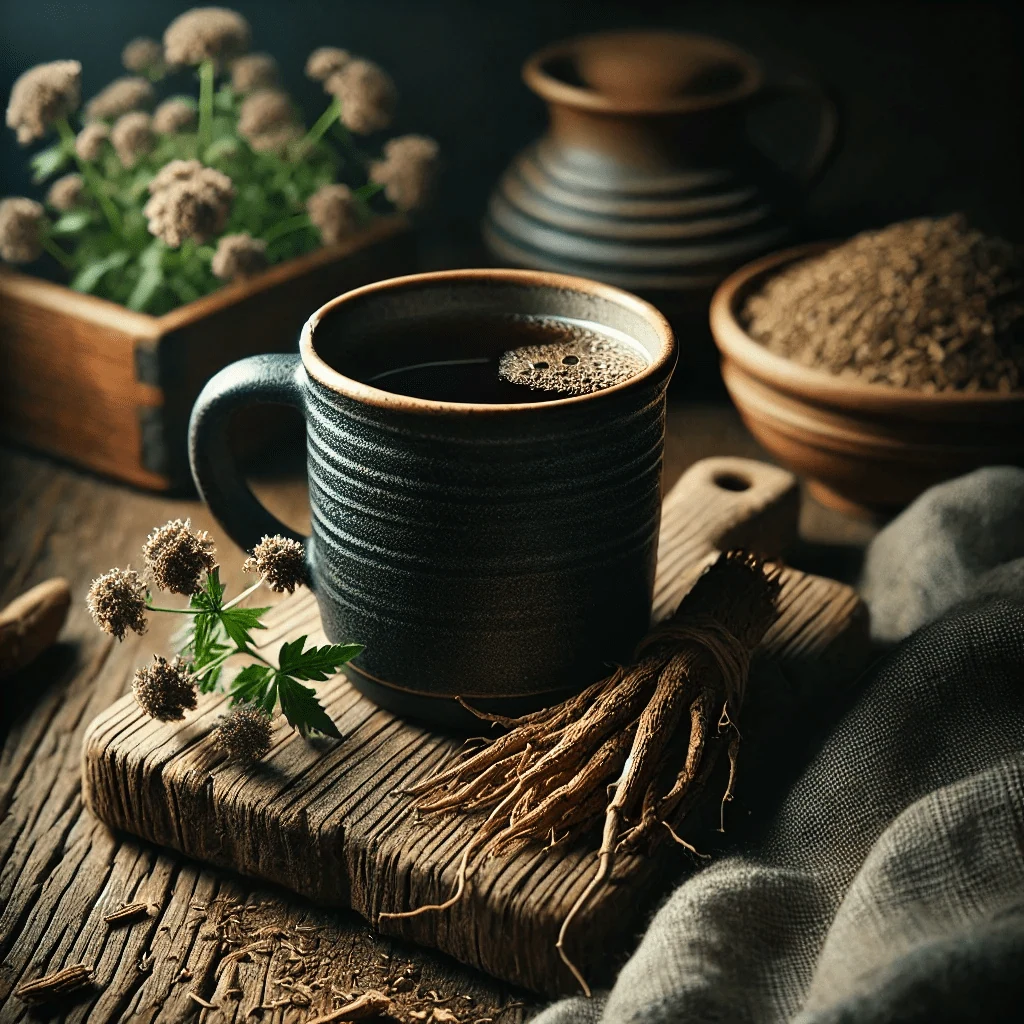
What it is:
Valerian root is a powerful herbal sedative that’s been used since ancient Greek and Roman times to treat insomnia and anxiety.
Why it helps with sleep:
Valerian increases GABA levels in the brain — that’s the neurotransmitter responsible for calming nervous activity. Several studies suggest valerian can help you fall asleep faster and stay asleep longer.
Taste profile:
Okay, honesty moment? It’s… earthy. Strong and kind of musky. Not everyone loves the taste, but blending it with other herbs (like peppermint or chamomile) can help.
How to prepare it:
Steep 1 teaspoon of dried valerian root in boiling water for 10–15 minutes. Drink about 30 minutes before bed.
Who should avoid it:
Not recommended during pregnancy or if you’re taking sedatives, anxiety meds, or antidepressants. May cause vivid dreams for some.
3. Lavender Tea
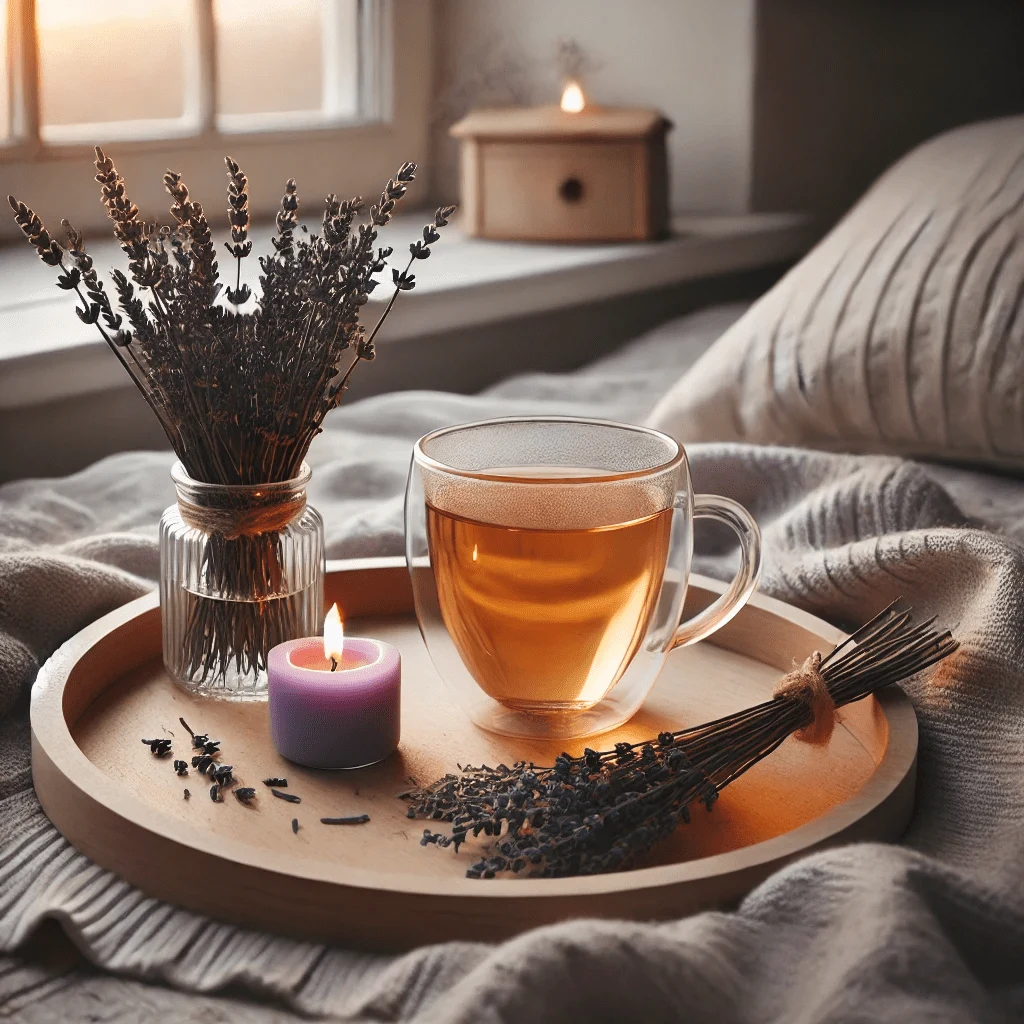
What it is:
Lavender is known for its calming scent, but steeped into a tea, it’s equally powerful for relaxing both body and mind.
Why it helps with sleep:
Studies show that lavender tea benefits sleep by easing anxiety and lowering heart rate, especially in those with mild insomnia or nighttime restlessness.
Taste profile:
Floral, soft, and a bit woodsy. Think spa day in a teacup.
How to prepare it:
Steep 1–2 teaspoons of dried lavender buds for 5–7 minutes. Cover the cup to trap the aromatic oils.
Who should avoid it:
May upset sensitive stomachs and should be avoided during pregnancy unless approved by your doctor.
4. Lemon Balm Tea
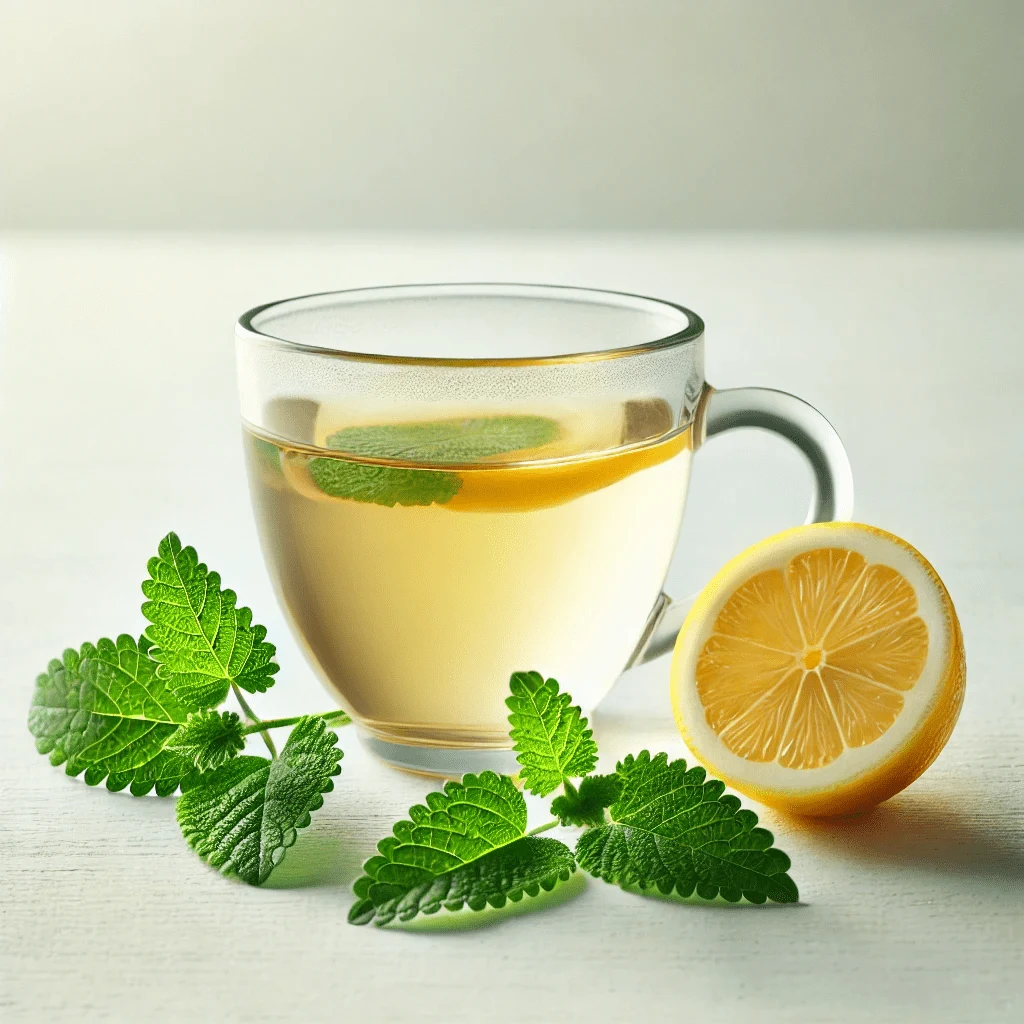
What it is:
Lemon balm is a citrusy herb in the mint family that’s been used since the Middle Ages to relieve stress and encourage sleep.
Why it helps with sleep:
It has natural sedative properties and can help ease anxiety and promote relaxation. One small study showed improved sleep in 80% of participants who used it regularly.
Taste profile:
Bright, lemony, with a refreshing minty aftertaste.
How to prepare it:
Use 1 tablespoon of fresh leaves or 1–2 teaspoons dried. Steep in hot water for 5–10 minutes.
Who should avoid it:
People taking thyroid medications or sedatives should talk to their doctor first.
5. Passionflower Tea
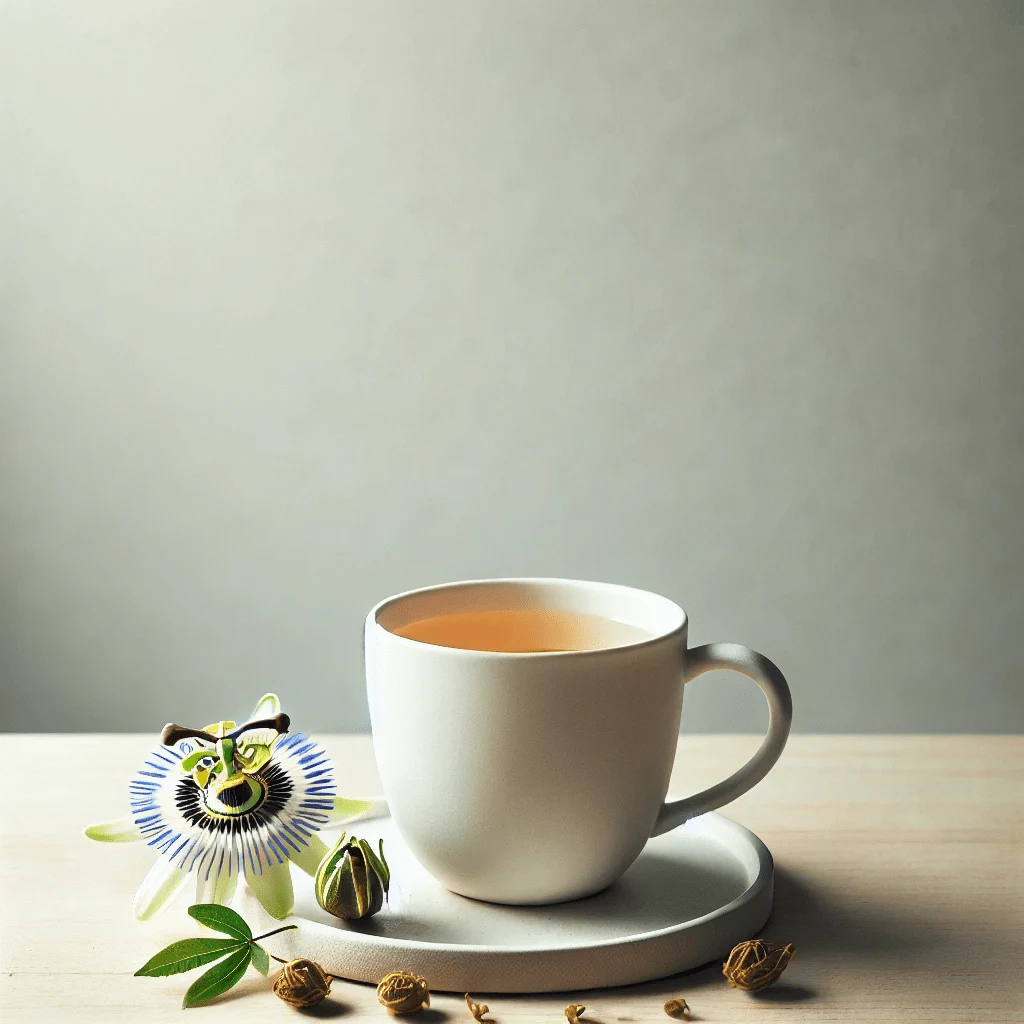
What it is:
This beautiful climbing vine is more than just a pretty flower — its leaves and flowers are used to calm the nervous system and reduce anxiety.
Why it helps with sleep:
Passionflower boosts GABA levels in the brain and has been shown to help quiet mental chatter, making it perfect for overthinkers and nighttime worriers.
Taste profile:
Mild, grassy, slightly sweet.
How to prepare it:
Steep 1 teaspoon of dried passionflower in hot water for 5–10 minutes. Best taken about 30 minutes before bed.
Who should avoid it:
Avoid during pregnancy and if you’re taking medications for anxiety, depression, or sleep.
6. Peppermint Tea
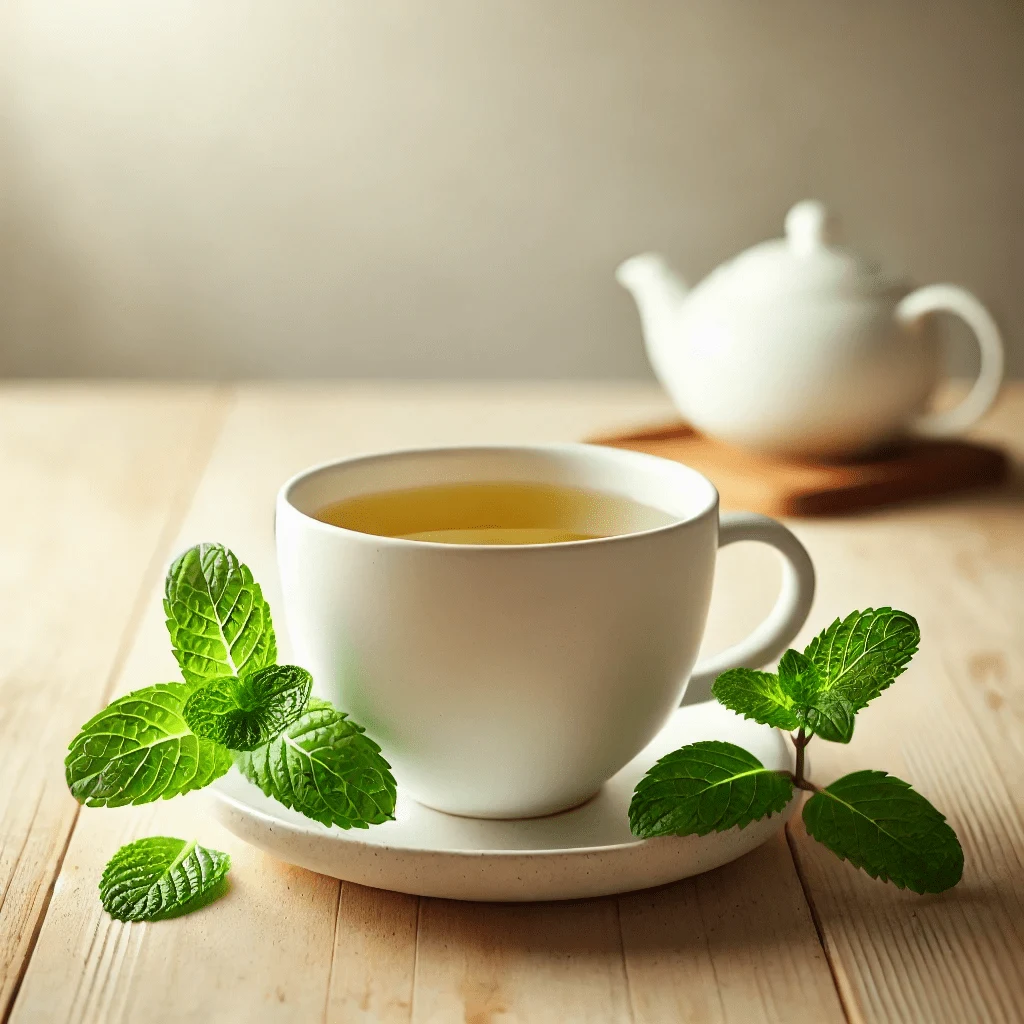
What it is:
Peppermint is more of a digestive herb than a sedative, but it’s still a rockstar in your bedtime routine.
Why it helps with sleep:
A cup of peppermint tea before bed can ease bloating, reduce discomfort, and relax tense muscles — all of which support better rest, especially after a big dinner.
Taste profile:
Cool, refreshing, and minty. Very clean.
How to prepare it:
Steep 1 tablespoon of fresh peppermint or a tea bag in hot water for 5–7 minutes.
Who should avoid it:
If you suffer from acid reflux or GERD, peppermint might make things worse. Listen to your body.
7. Magnolia Bark Tea
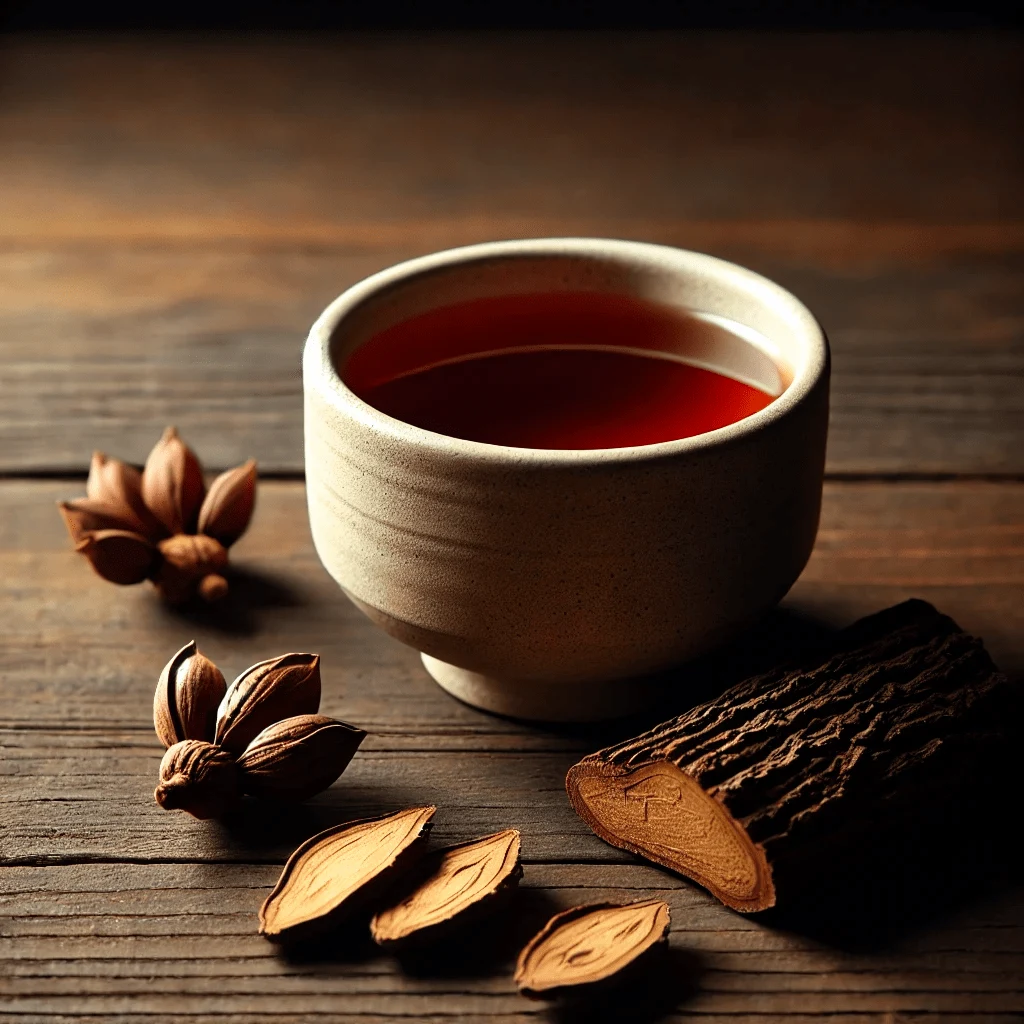
What it is:
Used in Traditional Chinese Medicine for centuries, magnolia bark is a lesser-known gem for sleep and anxiety relief.
Why it helps with sleep:
It contains honokiol, a compound that may help lower cortisol (your stress hormone) and promote deeper, more restorative sleep.
Taste profile:
Spicy, slightly bitter, earthy. Often blended with cinnamon or ginger to soften the flavor.
How to prepare it:
Use 1–2 teaspoons of dried magnolia bark per cup. Simmer for about 10 minutes, then strain.
Who should avoid it:
Pregnant or breastfeeding individuals should avoid it. Also, if you’re taking sleep or anxiety meds, check with your doctor.
When & How to Drink Sleep Tea for Best Results
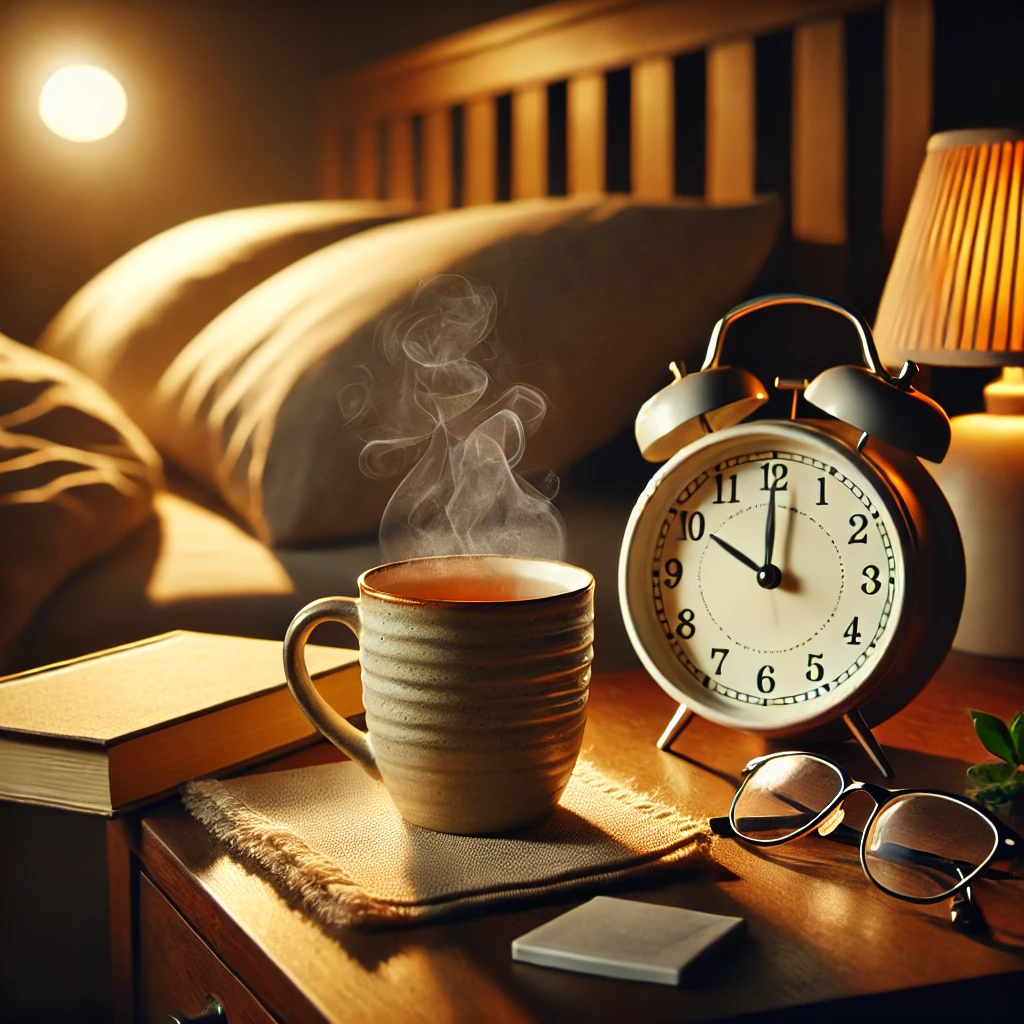
Alright, so you’ve picked out your perfect herbal tea — maybe a floral chamomile or a bold valerian blend. But when you drink it and how you enjoy it can make all the difference between a good night… and waking up at 3 a.m. to pee or toss around.
Let’s make sure you’re getting the most from every sleepy sip.
What’s the Best Time to Drink Herbal Tea Before Bed?
A good rule of thumb? Drink your herbal sleep tea about 30 to 60 minutes before bed.
That gives your body time to absorb the calming compounds (like apigenin or GABA boosters), while also avoiding any last-minute bathroom runs right when you’ve finally gotten cozy.
And if you’re the type who wakes up in the middle of the night, try sipping your tea on the earlier side of that window. You can also limit how much other fluid you drink afterward.
Should You Add Sweeteners to Bedtime Tea?
Short answer: it’s best to keep it simple.
Sugar — especially late at night — can spike your blood sugar and interfere with your natural sleep cycle. If your tea feels too plain, try these instead:
- A squeeze of lemon for brightness
- A sprinkle of cinnamon for warmth
- A tiny bit of raw honey (if needed) — just a drop or two
These additions keep your tea flavorful without wrecking your rest.
Add a Sleep-Supporting Snack (If You’re Hungry)
A rumbling stomach can be just as disruptive as a racing mind. If you’re a little hungry, try pairing your herbal tea with a light, sleep-friendly snack:
- A handful of almonds (rich in magnesium)
- A banana (loaded with sleep-supporting nutrients)
- A small bowl of oatmeal with a sprinkle of cinnamon
- A square of dark chocolate (yes, really — just a little)
Keep it light and nutrient-rich to support rest without spiking blood sugar.
Make It a Consistent Habit
Like anything with sleep, consistency is key. Whether it’s one of the best teas to drink before bed or a simple routine of stretching and sipping, repeating the same calming actions each night helps your body associate them with rest.
Start with just a few nights a week, and build your own rhythm from there.
Create Your Own Bedtime Blend (DIY Tea Recipes)
Let’s be honest — sometimes store-bought teas just don’t hit the right note. Maybe they’re too weak, too bitter, or missing that something you crave at night.
The good news? You don’t have to settle.
Making your own bedtime tea blend is easier than you think — and way more satisfying. It lets you tailor your sleepytime ritual to your taste, your needs, and your vibe.
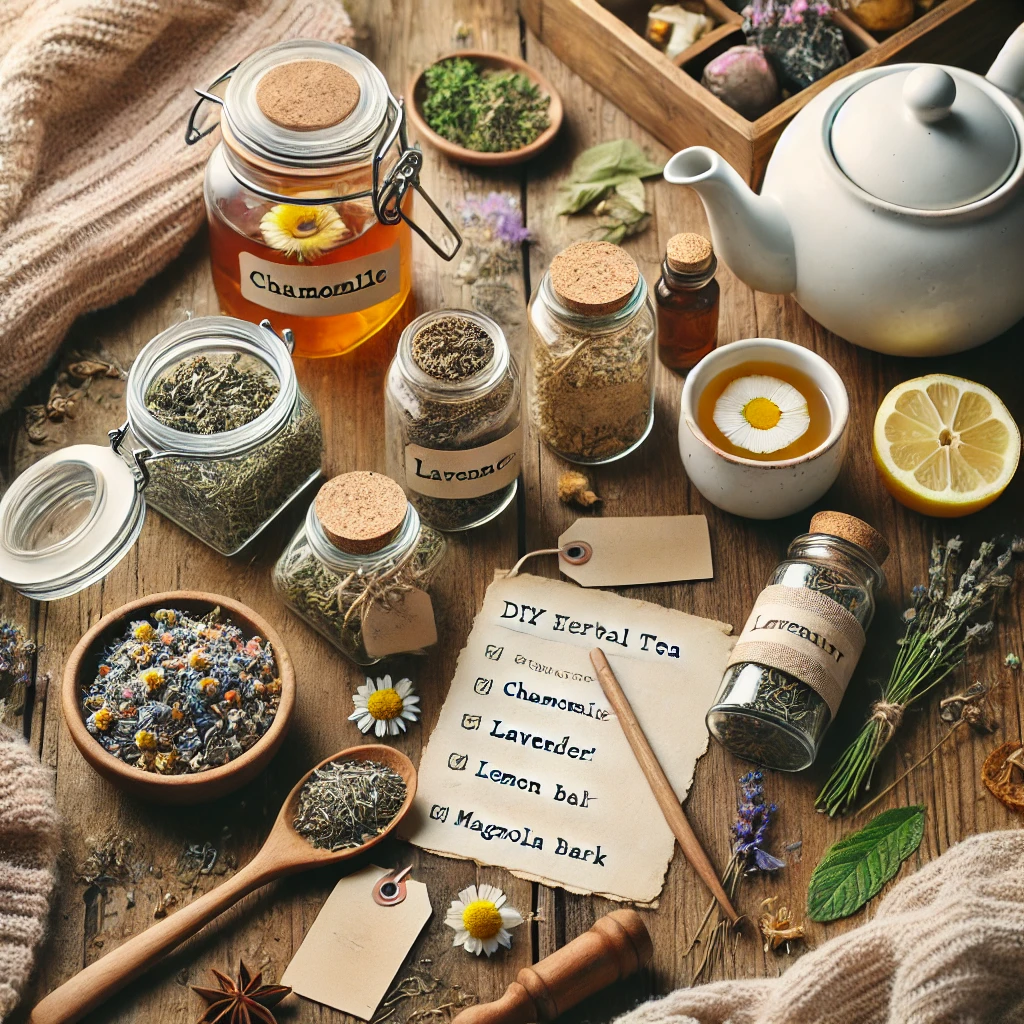
Why Make Your Own Herbal Sleep Tea?
Besides feeling like a kitchen herbalist (which is kind of fun in itself), making your own bedtime tea comes with some sweet perks:
- You control the ingredients (no fillers, no additives)
- You can adjust strength, flavor, and benefits
- It’s often more affordable in the long run
- It becomes part of a mindful, relaxing ritual
And if you’re using herbal tea to help with insomnia, combining a few calming herbs often works better than just sipping one on its own.
3 Simple DIY Tea Blends to Try Tonight
Here are a few gentle combinations to help you unwind. All of them are caffeine-free and made from herbs known to help with sleep, anxiety, or relaxation.
1. Floral Calm (for anxiety + mild insomnia)
- 1 tsp chamomile
- 1 tsp lavender
- 1 tsp lemon balm
Light, floral, and comforting. Great for easing into sleep after a stressful day.
2. Deep Sleep Blend (for trouble falling asleep)
- 1 tsp valerian root
- 1 tsp passionflower
- ½ tsp peppermint
Earthy and herbal with a cool finish. Stronger — great for overthinkers or restless minds.
3. Warming Wind-Down (for a cozy night)
- 1 tsp chamomile
- 1 tsp magnolia bark
- ½ tsp cinnamon or ginger
Slightly spicy, grounding, and perfect for cooler nights or stress-induced tension.
Tip: Start with small batches. Mix your herbs in a glass jar, label it, and steep 1 tbsp per cup of hot water for 7–10 minutes.
Loose Leaf vs. Tea Bags: Which Should You Use?
Both work — but loose-leaf teas tend to be fresher, stronger, and more aromatic. They also give you full control over your blend.
If you’re short on time or new to herbs, quality pre-blended tea bags are still a great option — just read the labels to avoid additives.
Storage & Brewing Tips for Flavor and Potency
To keep your teas tasting their best:
- Store herbs in airtight glass jars, away from heat and sunlight
- Use filtered water for the cleanest taste
- Always cover your mug while steeping — it locks in the volatile oils (aka the good stuff)
- Sip slowly and mindfully — don’t just chug and run
Precautions: Who Should Avoid Certain Herbal Teas?
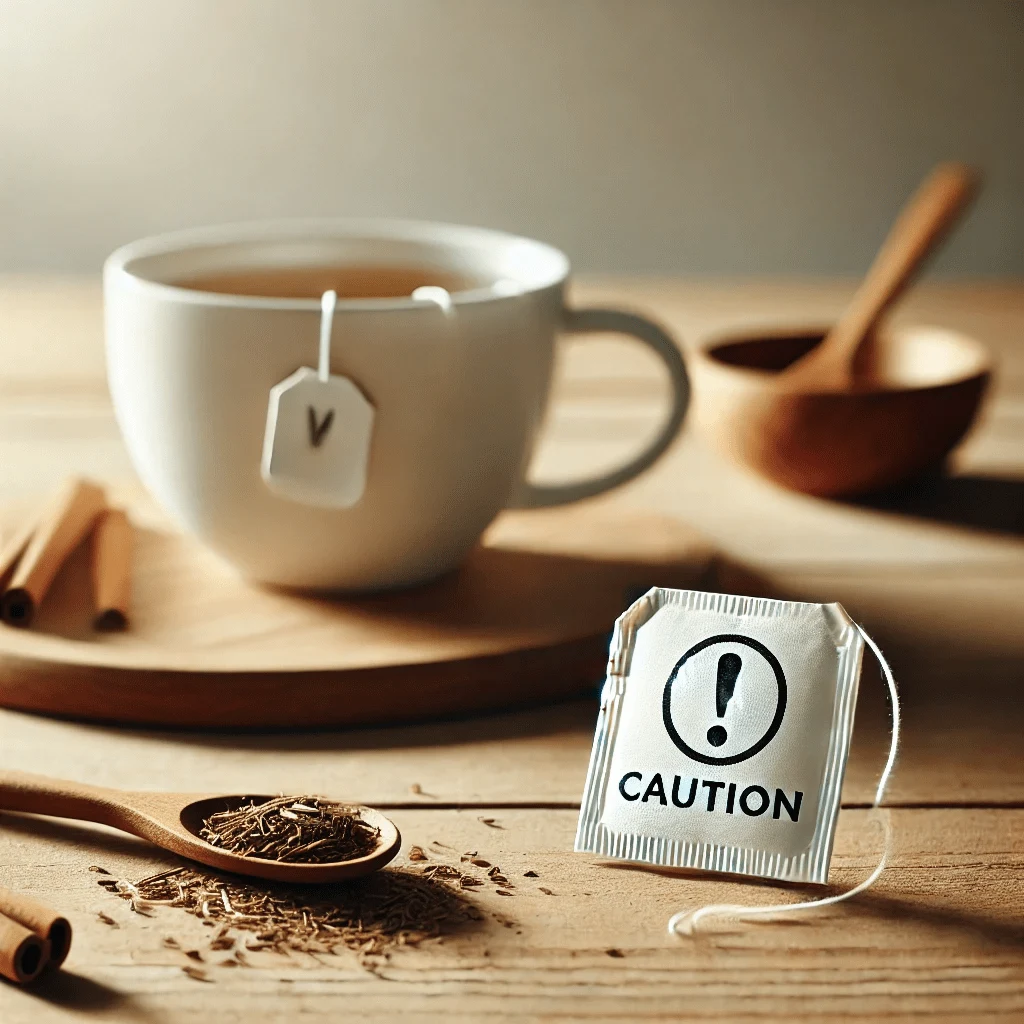
Now, we’ve been singing the praises of herbal teas — and for most people, they’re a gentle, comforting way to ease into better sleep. But just because something is natural doesn’t always mean it’s risk-free.
Here’s what to watch for before adding sleep teas to your nightly routine.
Tea and Medications Don’t Always Mix
If you’re taking prescription medications — especially for anxiety, depression, thyroid issues, or sleep disorders — certain herbs may not play nicely.
For example:
- Valerian root can amplify the effects of sedatives
- Passionflower may interact with anti-anxiety or antidepressant meds
- Lemon balm could impact thyroid function
Tip: If you’re on any regular medication, it’s always a good idea to chat with your doctor or pharmacist before diving into herbal sleep remedies.
Pregnancy & Breastfeeding Warnings
Expecting or nursing? Herbal teas require extra caution.
Some herbs like valerian, passionflower, and magnolia bark haven’t been thoroughly studied during pregnancy, and may affect hormones or uterine activity.
Even chamomile, though often seen as mild, is debated during pregnancy. So if you’re expecting, it’s safest to stick to pregnancy-approved options — and always double-check with your healthcare provider.
Allergies and Plant Sensitivities
Yes, herbs can trigger allergies — especially if you’re sensitive to certain plant families.
Here’s what to keep in mind:
- Chamomile is related to ragweed, daisies, and marigolds. If you have seasonal allergies to those, you might want to skip it.
- Peppermint can relax the digestive tract, which may actually worsen symptoms for those with acid reflux or GERD.
If you ever feel off — headaches, a rash, an upset stomach — take a break and check the ingredients.
A Quick Word on Overuse
If you find yourself needing tea every single night just to sleep, that could be a sign to explore deeper causes — like stress, screen time, nutrition, or sleep hygiene.
Teas can be part of the solution, but they work best when paired with other healthy sleep habits.
Herbal Teas for Sleep: A Natural Way to End the Day
So there you have it — seven of the best herbal teas for sleep, each offering its own calming benefits.
Whether it’s quieting anxious thoughts or simply creating a soothing bedtime ritual, a nightly cup of tea is a simple, natural way to support better rest. You don’t need to get it perfect — just a few consistent sips can signal to your body that it’s time to slow down.
Start with one or two teas this week and see which helps you sleep best.
FAQs: Herbal Teas That Help You Sleep
What is the best herbal tea to help you sleep fast?
Valerian root and passionflower are top picks if you’re looking to fall asleep quickly. They help increase GABA activity in the brain, which calms the nervous system and promotes sleep. Just start slow — they can be pretty strong for some folks.
Can I drink chamomile tea every night?
Absolutely! Chamomile is one of the gentlest herbal teas out there. It’s caffeine-free, calming, and safe for most people to sip nightly. Just be mindful if you have ragweed allergies.
What’s the best time to drink herbal tea before bed?
The sweet spot is about 30–60 minutes before bedtime. That gives your body enough time to absorb the tea’s calming compounds — without interrupting your sleep with a bathroom break.
Does peppermint tea help with sleep?
Peppermint isn’t a sedative, but it’s great for relaxing the body. It soothes digestion, eases tension, and can help you feel more comfortable heading into bed — especially after a big meal.
Can herbal teas replace sleeping pills?
They can be a natural alternative for some people with mild sleep issues. Herbal teas don’t force sleep the way pills can — they support your body’s own wind-down process. If you have chronic insomnia, talk to a sleep specialist first.
And there you go — a gentle guide to making bedtime a little more restful, one cup at a time. Got a favorite tea or sleepytime tip? Share it in the comments — your experience might just help someone else sleep better tonight.
👉 Save this guide on Pinterest to revisit later!


